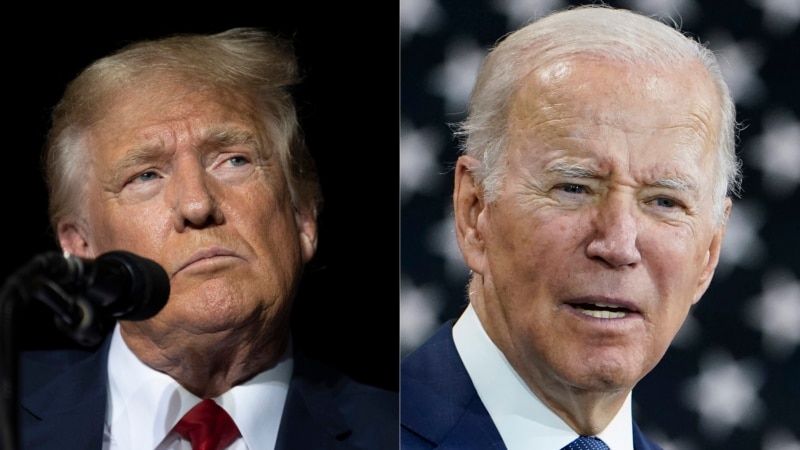For weeks, it has become increasingly likely that U.S. President Joe Biden and former President Donald Trump will face off again in the November national election, a repeat of their 2020 campaigns.
By Tuesday night, a rematch may be a certainty.
Democrat Joe Biden and Republican Donald Trump are expected to sweep in several low-key state presidential primaries on Tuesday. This ensures they receive a majority of delegates at their respective national party conventions this summer, where they will be formally nominated.
If they somehow miss their chance to gain a majority on Tuesday, either of them could achieve it in the next set of primaries next week.
Biden once again faces only nominal opposition as the Democratic nominee.
Trump, meanwhile, defeated several Republicans in primaries, including former United Nations Ambassador Nikki Haley and Florida Gov. Ron DeSantis. Other candidates, including Trump’s former Vice President Mike Pence, dropped out months ago due to a lack of voter support as Trump clearly controlled large swaths of Republican voters.
Even without officially being nominated by their respective parties, the two candidates were in full campaign mode eight months before the election, attacking each other on every possible occasion.
In last week’s State of the Union address, Biden disparaged “my predecessor” 13 times, never mentioned Trump by name and instead painted a dystopian vision of a second Trump presidency.
Trump mocked Biden for being 81 years old, even though he is only four years younger.
“I think he’s going to be the nominee,” Trump said of Biden on CNBC on Monday. “Besides life, life itself, I am his only opponent.”
Most early national polls show Trump slightly ahead of Biden in several key political battleground states that could determine the national outcome of the Nov. 5 vote. But Trump also faces an unprecedented four criminal indictments covering 91 charges, with a trial set to begin on March 25.
It’s uncertain whether other cases will be heard before the election, but some voters told pollsters they would not vote for Trump if he was found guilty of any of the charges.
The United States does not elect its president through a national popular vote, but through state-by-state elections in the 50 states and subsequent Electoral College votes.
With few exceptions, the winner of each state’s vote wins all of its electoral votes, with the largest states having the most electoral votes and the greatest influence on the national election outcome.
Biden entered Tuesday’s party primary with 102 delegates, falling short of the 1,968 delegates needed to officially become the presumptive Democratic nominee. In addition to intra-party races in the CNMI and overseas Democrats, 254 Democratic representatives are at risk in Georgia, Mississippi and Washington state.
Trump is 137 delegates short of the 1,215 delegates needed to win the Republican nomination. On Tuesday, 161 Republican representatives were at risk in Georgia, Mississippi, Washington and Hawaii.
With a strong showing, Trump could sweep all delegates in Georgia, Mississippi and Washington state. Hawaii allocates delegates proportionally so that other candidates still on the ballot against Trump can win some delegates, even if by a small percentage of the vote.
Some of the material in this report comes from The Associated Press.
Follow us on Google news ,Twitter , and Join Whatsapp Group of thelocalreport.in
